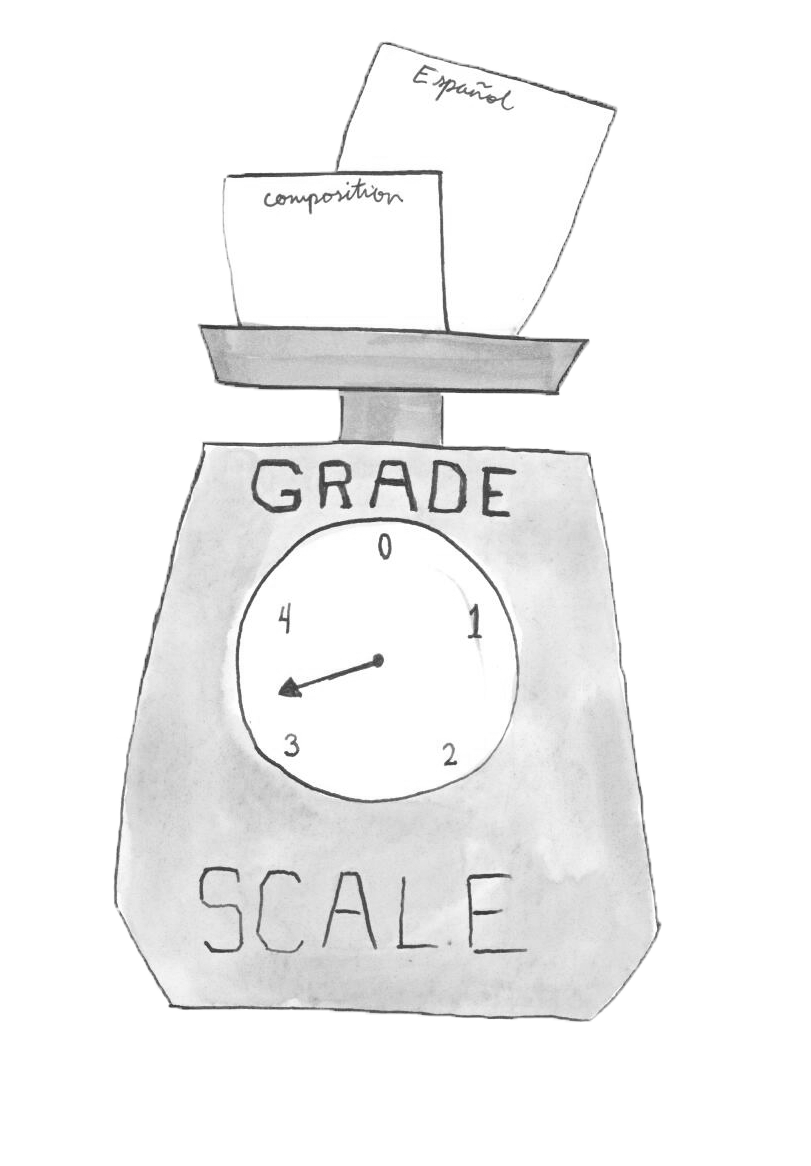
The standards-based grading scale, or the four point grading system, has been implemented by the Aragon Spanish Department this academic year, joining other classes such as Band and Culinary Arts. This scale is a new way of approaching grading, offering a different system than the more common A through F scale.
Spanish teacher Benjamin Ho says, “This was a decision that we made as a department at the end of the last academic year, and we worked on it over the summer for this academic year.” Ho also adds, “It was a decision we made as a department, because essentially we wanted to have a grading system that accurately reflected how students could apply what they learned in the language classroom.”
Band teacher Troy Davis, who made the switch to the four point grading scale fouryears ago, says, “I devised my system with student learning in mind. I think one of the benefits of the four point grading scale is that the system is very real.”
Ho discusses how the Spanish Department developed the system for this year, saying, “It first came about with [retired Aragon history teacher] Jim Smith, who actually presented this grading system to the faculty throughout the last couple of years before he retired last year. This is a grading system that is gaining traction nationwide and being pushed by research and different educational publications.” The department attended multiple professional development sessions and meetings with Smith in addition to working together over the summer and conducting research to prepare the system for the coming school year.
Spanish teacher Nicole Elenz-Martin explains why she likes and uses the new scale, saying, “you are giving students a grade or an evaluation, at least in world languages, of their proficiency and being able to communicate and use the language.” The new standards-based system breaks up the gradebook into categories that are more relevant and useful, in the department’s opinion, to both the student and the teacher. Instead of using categories such as tests or quizzes, new ones such as “interpersonal communication” and “reading comprehension” allow the student and the teacher to more accurately gauge which aspects of the language the student is struggling with, whether it be their speaking, writing or listening.
Elenz-Martin adds, “I’ve been at Aragon for 12 years, in all of the ways that I’ve seen different types of learning, I’ve found that there’s a huge disconnect, personally for me and what grades the traditional grading system shows about a student.” This negative experience with the old scale that depicted unfairness relates to what Davis had said about it. These experiences also led teachers such as Ho, Elenz-Martin and Davis to view the new scale as not only more accurate but also more fair for the student by helping those who were D or F students in the traditional grading system that didn’t necessarily deserve that grade, and by offering retakes in order to improve one’s score.
Despite the good the department sees in the system, student opinions vary about it.
Junior Iman Adibi, who takes Spanish III currently, says, “It makes it harder for students to fail, but at the same time it makes it harder to get an A … honestly there aren’t that many students who are failing, and it makes it harder to get an A, and I feel more people are trying to get an A than just trying not to fail.”
Elenz-Martin concludes, “That’s a reason why we give the reassessment opportunities. If students do receive a grade of a three or a level of a three, and they don’t like that, they are more than welcome to retake that assessment and replace that three with a four if they are willing to improve.”



